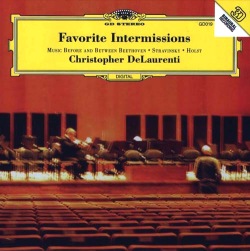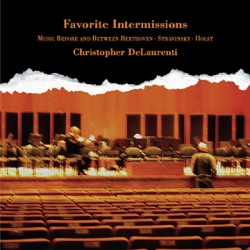 When you’re in a town with a good university or two, spring always brings a sudden flood of concerts and recitals, almost all of them free. It’s kind of like having a mini-festival, chock-a-block full of tasty morsels. Down here in Houston, Rice University is my main music fix (the University of Houston is no slouch, either, but I’m being picky), and April has a number of excellent-sounding concerts with newer music (and yes, that’s just what the weather looks like down here right about now):
When you’re in a town with a good university or two, spring always brings a sudden flood of concerts and recitals, almost all of them free. It’s kind of like having a mini-festival, chock-a-block full of tasty morsels. Down here in Houston, Rice University is my main music fix (the University of Houston is no slouch, either, but I’m being picky), and April has a number of excellent-sounding concerts with newer music (and yes, that’s just what the weather looks like down here right about now):
April 10th, 8pm, Stude Concert Hall – the Shepherd School of Music’s Percussion Ensemble takes on Steve Reich’s Music for Mallet Instruments, Voices, and Organ. Also worth experiencing on the bill is Arthur Gottschalk’s The Consecration of the Fatted Calf, for 16 timpani.
April 13th, 8:30pm, Hirsch Orchestra Recital Hall: Composer Elliot Cole offers his senior recital, with works for double string quartet, clavichord, jazz piano trio, and electronics. I’ve heard this young guy’s work, and like it quite a bit.
April 14th, 7:30pm, Hirsch ORH: Percussionist Grant Beiner gives his master’s recital, with works by Xenakis, Cage and Veldhuis.
April 21st, 7pm/April 22nd, 8pm, Wortham Opera Theater: Rice’s REMLABS (the electronic music school) sponsors two concerts: April 21st is “Hecho en Mexico“, a program of electroacoustic music by composers who reside or study in Mexico; the next night it’s the turn of all the local Rice composers to share their creations.
April 23rd, 8pm, Stude Concert Hall: the Shepherd Chamber Orchestra takes on Olivier Messiaen’s Oiseaux exotiques, with Brian Connelly the piano soloist.
April 25th, 8pm, Stude Concert Hall: The Shepherd Symphony and Rice Choral get together to give Stravinsky’s always-stunning Symphony of Psalms, then finish up with Mahler’s 4th Symphony.
I’m not even counting the couple dozen other recitals, with quite nice, though more traditional, fare. All that music, without spending a dime on admission — what could be better?…
If that weren’t enough, I should mention that happening right in the middle of all that, the Pacifica Quartet hits town to give us their cycle of all five Elliott Carter Quartets. On Sunday, April 13, 2008 at 3:00 PM there’s a free concert in The Menil Collection’s fantastically weird Cy Twombly Gallery (Temple? Mausoleum?), featuring Carter’s String Quartet No. 1. (Reservations are required; call 713-524-5050). Monday, April 14, 2008 at 7:30 PM, the event continues with Carter’s String Quartets Numbers 2 and 3 and Beethoven’s Piano Sonata No. 31 in A-flat Major, Op. 110. On Tuesday, April 15, 2008 at 7:30 PM, the program is Carter’s String Quartets Numbers 4 and 5 and Beethoven’s Piano Sonata No. 32 in C Minor, Op. 111. (These last two concerts you’ve got to pay for, but it’s all still quite a deal.)
Of course, many of you know of similar treats happening the next couple months in your own neck of the woods; feel free to mention anything worthwhile in the comments.
 When you’re in a town with a good university or two, spring always brings a sudden flood of concerts and recitals, almost all of them free. It’s kind of like having a mini-festival, chock-a-block full of tasty morsels. Down here in Houston,
When you’re in a town with a good university or two, spring always brings a sudden flood of concerts and recitals, almost all of them free. It’s kind of like having a mini-festival, chock-a-block full of tasty morsels. Down here in Houston,  At 66, baritone
At 66, baritone  At the start of 2007, I told you about my composer/sound-artist pal
At the start of 2007, I told you about my composer/sound-artist pal  After lengthy negotiation, Chris’ CD has been given the green light again, and is
After lengthy negotiation, Chris’ CD has been given the green light again, and is  I must confess that I had never heard of pianist
I must confess that I had never heard of pianist